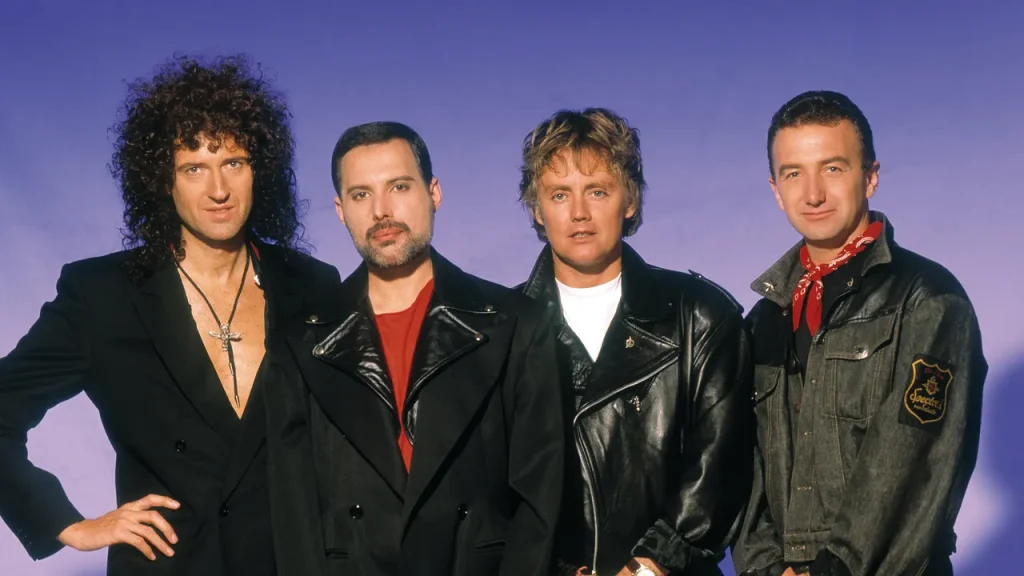The realm of contemporary music bears witness to the enduring legacy of one of the most iconic and influential bands in the history of rock and pop – Queen. Formed in London in 1970, Queen revolutionized the music industry with their unique sound, theatrical performances, and genre-defying compositions. This article explores Queen’s profound influence on contemporary music, highlighting their musical innovation, stage presence, and the indelible mark they left on subsequent generations of musicians.
Musical Innovation:
At the heart of Queen’s influence lies their unparalleled musical innovation. The band, consisting of Freddie Mercury, Brian May, Roger Taylor, and John Deacon, seamlessly blended various genres such as rock, opera, ballads, and even funk, creating a distinctive and eclectic sound. Their groundbreaking approach to songwriting and arrangement set them apart from their peers, demonstrating that musical boundaries were meant to be pushed.
Queen’s 1975 album, “A Night at the Opera,” is a testament to their experimental spirit. The epic “Bohemian Rhapsody” stands as a magnum opus, defying conventional song structures and featuring intricate vocal harmonies. This composition not only became an anthem for the 1970s but also paved the way for progressive and symphonic elements to find their way into mainstream rock.
Stage Presence and Theatricality:
Queen’s live performances were nothing short of theatrical extravaganzas. Freddie Mercury, with his dynamic stage presence and powerful vocals, commanded the audience’s attention like few others. His flamboyant style, coupled with the band’s elaborate light shows and intricate stage setups, redefined the concert experience. Songs like “We Will Rock You” and “We Are the Champions” became anthems that resonated in stadiums worldwide, showcasing Queen’s ability to connect with diverse audiences through their live performances.
The influence of Queen’s theatricality extends far beyond their own concerts. The band’s emphasis on creating a visually stunning and emotionally charged live experience inspired subsequent generations of performers. From the elaborate stage productions of acts like U2 and David Bowie to the charismatic showmanship of artists like Lady Gaga, it is evident that Queen’s impact transcends musical genres.
Enduring Popularity:
While Queen experienced its peak success in the 1970s and 1980s, their popularity has not waned over the years. In fact, the band’s music continues to find new audiences, thanks in part to the 2018 biopic “Bohemian Rhapsody,” which brought Queen’s story to a new generation. The film not only reignited interest in the band’s discography but also introduced their timeless classics to a contemporary audience.
Moreover, Queen’s influence is evident in the numerous cover versions and tributes by artists from diverse genres. Their songs have been featured in movies, commercials, and sporting events, solidifying their place in the cultural zeitgeist. The enduring popularity of Queen’s music underscores the timelessness of their sound and the lasting impact they have had on the fabric of contemporary music.
Legacy and Inspiration:
Queen’s influence extends beyond the charts and accolades. Their legacy is deeply embedded in the fabric of contemporary music, inspiring countless artists to push boundaries, embrace diversity, and experiment with new sounds. From the operatic rock of Muse to the genre-blurring style of Panic! At The Disco, Queen’s impact is evident in the DNA of many modern acts.
Queen’s influence on contemporary music is a tale of innovation, showmanship, and enduring popularity. Their eclectic sound, dynamic stage presence, and timeless classics have left an indelible mark on the music industry. As we continue to celebrate and revisit their catalog, it becomes clear that Queen’s influence is not just a historical footnote but a living testament to the transformative power of music. The band’s ability to captivate audiences across generations cements their status as one of the greatest and most influential bands in the history of contemporary music.

